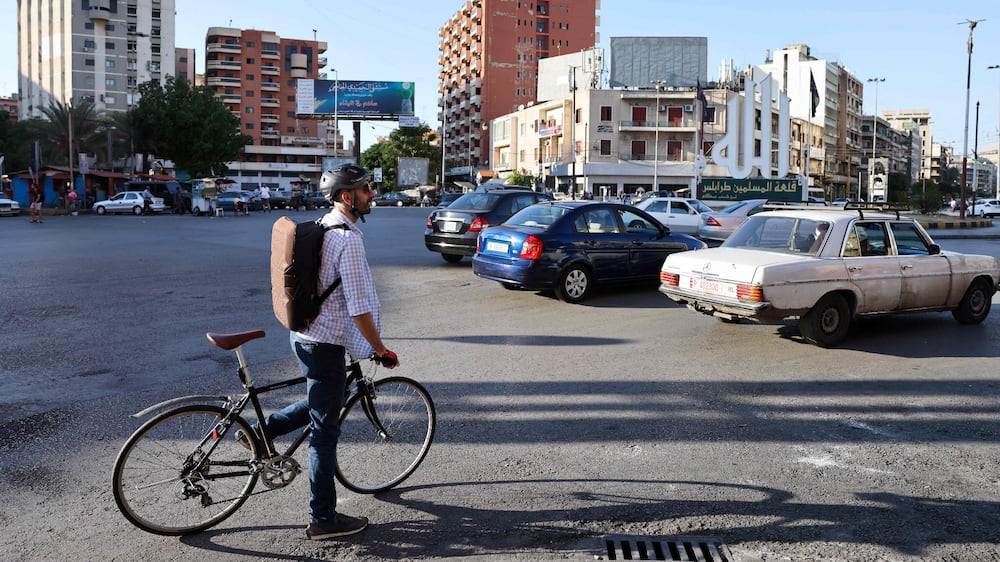Luxembourg judicial authorities have opened “a criminal case” in relation to Lebanese Central Bank Governor Riad Salameh and his companies and assets, a judicial representative of the European Union country told Reuters on Monday.
A representative of Lebanon’s Central Bank said Mr Salameh had not been informed of any case against him in Luxembourg and declined further comment.
“It’s inevitable that every country where the governor holds assets will eventually open an investigation,” said Zena Wakim, a lawyer in Switzerland for Accountability Now, a non-profit organisation which has pushed for investigations into the sources of Mr Salameh’s wealth.
Economic crisis forces Lebanon to rethink car culture
“It’s a logical step. We expect Belgium, Monaco and Singapore next. It’s just a ripple effect,” she told The National.
Mr Salameh, 71, is already under at least two European investigations, including a Swiss inquiry opened in January over alleged “aggravated money laundering” at the central bank involving $300 million in profit made by a company owned by Mr Salameh’s brother.
The Swiss probe prompted Lebanon’s public prosecutor to launch a local investigation into Mr Salameh’s wealth in April. Lebanese daily L’Orient-Le Jour reported that Lebanese judge Jean Tannous questioned Mr Salameh in August and in September.
He is suspected of misuse of public funds, illicit enrichment, money laundering and tax evasion.
But Lebanon’s banking sector has done little to help Mr Tannous, wrote French daily Le Monde this month. The judge asked four Lebanese banks – Bank Audi, Banque Misr, Bank Med and Credit Libanais – to review more than $200 million that flowed through Mr Salameh’s accounts between 2000 and 2010.
The newspaper reported that of the four, only Bank Audi had accepted to collaborate. The other banks referred Mr Tannous to the central bank’s special investigative committee, which is presided by Mr Salameh himself.
An investigation into money laundering allegations has been under way in France since late May. Le Monde reported that French police on October 21 raided apartments in Paris belonging to Mr Salameh, his brother Raja and a Ukrainian citizen, Anna Kasakova, which whom the governor had a daughter outside marriage.
Swiss newspaper Le Temps previously reported that Ms Kasakova, 44, owns property assets worth more than €10m ($11.4m) in the French capital.
Mr Salameh, who has been Lebanon’s Central Bank governor since 1993, has previously denied any wrongdoing in connection with the investigations. He claims that his fortune comes from his previous employment as a banker at investment bank Merrill Lynch and from inheritances.
He has faced increased scrutiny of his 28-year tenure as central bank governor since the collapse of Lebanon’s financial system in 2019, prompting the country’s worst-ever economic crisis.
Banks imposed illegal capital controls in November 2019 and banned transfers abroad. The Lebanese pound has lost more than 90 per cent of its value in the past two years. Over two thirds of the population lives under the poverty line, the UN says.
“The destruction of the Lebanese lira has devastated lives and impoverished millions,” said UN Special Rapporteur on extreme poverty and human rights Oliver De Schutter on Friday at the end of a 12-day visit to Lebanon.
“This is a human-made disaster that was long in the making.”
Updated: November 15, 2021, 6:18 PM
Source link : https://www.thenationalnews.com/mena/2021/11/15/luxembourg-opens-criminal-inquiry-into-lebanons-central-bank-governor-riad-salameh/
Author :
Publish date : 2021-11-15 08:00:00
Copyright for syndicated content belongs to the linked Source.


